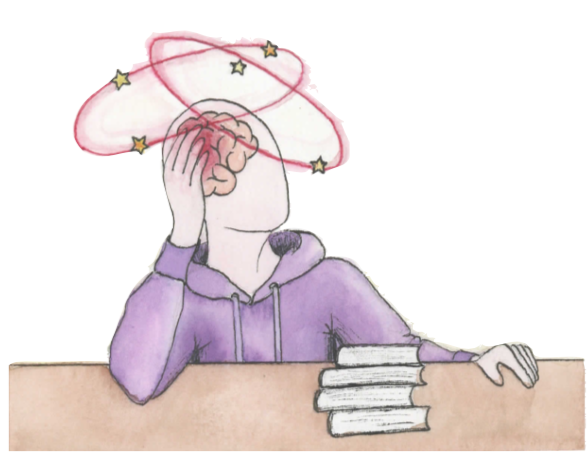
As a growing number of measles cases breaks out in western states, the debate about whether to vaccinate has come under scrutiny again. Here on campus, there are currently 14 students missing some or all vaccinations.
Anti-vaccinators, a group of people rallying against vaccinations, have come out of the woodworks in recent years under Facebook group names such as “Moms Against Vaccination.” “Anti-vaxxers,” as they’re often referred to, commonly use alternatives such as essential oils or vitamins as substitutes for vaccinations. Medical professionals are concerned about the rising rate of measles as a result.
“We’ve been able to almost eradicate many diseases worldwide, many which were life changing and or life threatening, so I think that being vaccinated is a safe and healthy thing for people to do,” said Mary Masson, director of Bergeron Wellness Center. “What you’re seeing in these cases is children that are getting very ill and sometimes dying from the measles again, where we had the means to protect those children with a proper vaccination.”
The anti vaccination movement stems from British study published in 1995 claiming a link between the measles-mumps-rubella vaccine (MMR) and autism. Although subsequent studies have scientifically debunked the premise time and time again, this link resonates with anti-vaccinators. Another study, published Monday in the Annals of Internal Medicine, shows no association between the MMR vaccine and autism.
“The vaccine related to autism theory has got to be the one study that was then debunked that has always stuck with people,” Masson said. “It was one study by a British physician. It was not only a fraudulent study and totally debunked, he then lost his medical license. And yet, people today still believe his study that is linked to autism. So, there is no scientific evidence that any vaccines are linked to autism.”
With this trend on the rise, more and more young children have parents choosing not to vaccinate them. This leaves other children at risk for possible diseases, as well as the teachers and supervisors around them. “I grew up in a family with immune-system-compromised members, so to me, they’re important,” said a 2018 St. Michael’s Alumni, now working as a schoolteacher. “I’m there to teach them, whether they’re vaccinated or not. If I did have a student who was unvaccinated, I would definitely make sure to deep clean my room everyday, and especially when the flu or stomach bug is going around.”
Falling vaccination rates can directly cause harm to children and adults who are unable to get vaccinated, said the U.S. National Library of Medicine on their website. The anti-vaccination movement has made headlines recently due to the re-emergence of diseases such as measles, which were once almost eradicated. The Center for Diseases Control [CDC] reports 159 measles cases in 10 states. Common symptoms of measles are ear infections or diarrhea, and in some cases, hearing loss or death due to pneumonia caused by measles.
“The easy problem to look at is that people aren’t vaccinating their kids, so here comes a bunch of medieval diseases we haven’t had for a long time because we’ve had vaccines,” said Daniel Mallory ’21, a biochemistry and math major. “Measles is easily one of the most infectious diseases, and it didn’t exist anymore for a reason.”
Certain vaccinations are required by the Vermont Department of Health in order to attend schooling of all ages, including college. These vaccinations include the Measles, Mumps, Rubella vaccine [MMR], chickenpox, tetanus, and hepatitis B. However, students are able to sign a medical exemption, or an exemption claiming religious beliefs, and still attend St. Michael’s.
“If they do sign an exemption saying they have a religious reason why they don’t want to get vaccinated, or a medical reason, then they can do that, and still be a student here, but we keep track of who they are,” Masson said. “If there is an outbreak of any one of those things that they’re not properly vaccinated for, they are notified immediately and given the chance to get vaccinated and or leave campus for their safety, so they’re not exposed to it.”
Cases of the measles and the mumps have been coming up across the map, occurring mostly in the Northwest and New York State. St. Michael’s experienced its own cases of the mumps last year, with three students affected by the disease – all three having not only their MMR vaccination, but also a booster shot against MMR as well.
“The booster gives your immune system that boost to react to it, and then supposedly you have lifelong immunity,” said Masson. “What we’re
finding with the mumps is there’s a certain small percentage of the population that immunity waned. So, even though those students were vaccinated, they lost a little bit of their immunity. They did not get as serious a case of the mumps, but they still got the mumps.” The CDC is now looking at the possibility of a third booster shot, Masson said.
